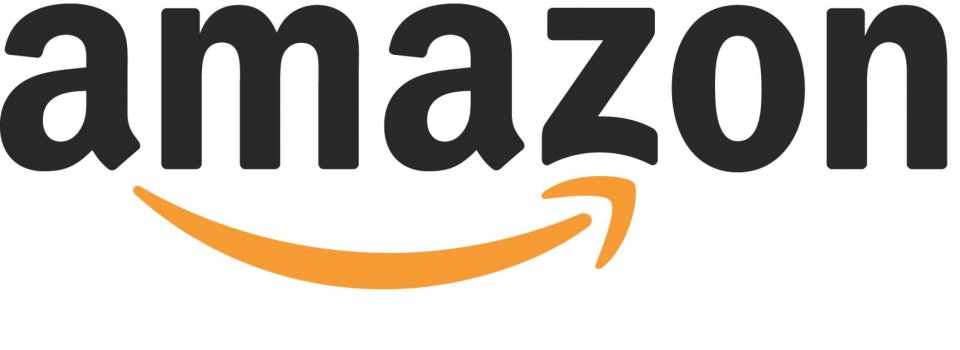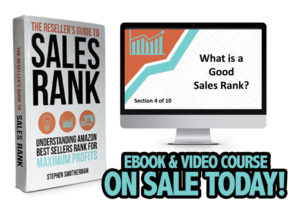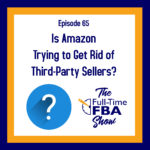As we stand at the beginning of the new year, you might be asking the same question many others are: Is Amazon trying to get rid of third-party sellers? Spoiler alert: The answer is “no.” While common frustrations like increasing Amazon fees, storage limits, and brand restrictions seem to make it harder and harder to sell on Amazon, there are actually a multitude of solid reasons why Amazon needs third party sellers like you and me in order to be successful. In this episode, we explain why Amazon wants third-party sellers and why there is no need for you to be concerned about them kicking you off their platform (as long as you’re following the Amazon guidelines).
While we do not deny the fact that Amazon has a complicated relationship with third-party sellers, they do a great deal to help us be successful. In this episode, we uncover all the objections and encourage you further on your journey of creating a super successful Amazon FBA business!
Listen on the podcast player below.
Like what you hear? Tell a friend… and be sure to leave us a rating and a review. Here’s how.
Key points from Episode 65:
 The three main reasons that some sellers get the idea Amazon doesn’t like having them around.
The three main reasons that some sellers get the idea Amazon doesn’t like having them around.- Are Amazon third-party seller’s fees justifiable?
- Learn what inventory performance index (IPI) is and why it matters.
- What happens when you don’t meet minimum IPI requirements and why Amazon does that.
- An explanation of the restrictions that Amazon puts on brands, categories, and more.
- Why Amazon needs third-party sellers.
- Hear about many of the things Amazon does to help third-party sellers be successful.
- The importance of getting to the root of your beliefs about what Amazon is trying to do.
- Keep in mind that e-commerce is still a young industry with some growing pains.
- The complicated relationship between Amazon and third-party sellers and their data.
- And more!
Links and resources mentioned in this episode:
 Jeff Bezos’ 2019 letter to Amazon stockholders
Jeff Bezos’ 2019 letter to Amazon stockholders- Inventory Performance Index (IPI)
- How to Handle 500 Minimum IPI Score Requirements
- Getting Approved to Sell Restricted Products
- Restricted Again? Why Approved Brands Sometimes Get Re-Restricted on Amazon
- Know Your Numbers – Understanding Amazon Fees
- Leave a Review for The Full-Time FBA Show
Right-click here and save as to download this episode to your computer.
 More Episodes from the Full-Time FBA Show podcast:
More Episodes from the Full-Time FBA Show podcast:
Don’t miss an upcoming episode! Subscribe, download episodes, and review the Full-Time FBA Show:
-
-
- Subscribe on iTunes
- Follow on Spotify
- Follow on Amazon Music (or just ask Alexa to “play The Full-Time FBA Show podcast”)
- Follow on iHeartRadio
- Subscribe on Podbean
- Subscribe on Podbay
- Subscribe on Podchaser
-
![]()
 Sales rank is easily the most misunderstood aspect of selling on Amazon. What is a good sales rank? What does a sales rank of zero mean? What do I do with sales rank for sub-categories? Why does sales rank have to be so confusing so much of the time?
Sales rank is easily the most misunderstood aspect of selling on Amazon. What is a good sales rank? What does a sales rank of zero mean? What do I do with sales rank for sub-categories? Why does sales rank have to be so confusing so much of the time?
I’m here to tell you it doesn’t have to be that way! You can finally get the clarity you need on the issue of understanding Amazon sales rank numbers. We at Full-Time FBA have launched a mini-course called The Reseller’s Guide to Sales Rank: Understanding Amazon Best Sellers Rank for Maximum Profits. The mini-course is a combination ebook (30+ pages) and video course (almost 2 hours).
Check out The Reseller’s Guide to Sales Rank mini-course to see how you can master the concept of best sellers rank and be on your way toward smarter sourcing decisions for your Amazon FBA business!
![]()
Back to the main page for The Full-Time FBA Show
![]()
Episode 65 Transcript:
 [WELCOME]
[WELCOME]
[0:00:01.8] ANNOUNCER: Welcome to The Full-Time FBA Show. In each episode, it’s our goal to help you turn part time hours into a full-time income, selling almost anything on Amazon. Now, your hosts of the show, Stephen and Rebecca Smotherman.
[INTERVIEW]
[0:00:21.5] STEPHEN: Welcome to episode number 65 of The Full-Time FBA Show, and ladies and gentlemen, welcome to 2021! I’m excited about this. And with me, who is also excited I’m sure, is my wife Rebecca. How are you doing Rebecca?
[0:00:34.6] REBECCA: Yeah, I’m thrilled. I mean, I’m excited for the podcast, I’m trying to get excited about 2021, we’ve turned a corner guys, hopefully it’s a good one.
[0:00:44.7] STEPHEN: Hopefully, yes. Well, today, on the show, we’re going to be talking about, is Amazon trying to get rid of third-party sellers and if you want the quick answer, it’s no, they’re not. But some people are asking this question. So, we’re going to get into why we think Amazon wants third-party sellers and why you don’t need to be worried that Amazon’s going to try to knock you out.
So, we’ll talk about that on this episode of The Full-Time FBA show.
[0:01:11.4] REBECCA: So, Stephen, as we get started here, why would we even ask this question? Is Amazon trying to get rid of third-party sellers? That seems like a question, maybe some people listening to this podcast episode might think, I never even thought that. But then others are convinced that this is going on an ongoing basis.
That Amazon just wants to kick all third-party sellers off their platform, they don’t even like third-party sellers, why should I even do this business because of the way Amazon treats us. Let’s talk about, why do some sellers feel that way? Why do some Amazon sellers think that Amazon is just out to get them, wants to kick them off the platform?
[0:01:50.5] STEPHEN: Yeah, it’s definitely not a majority of Amazon sellers who think this but there’s enough people who have either reached out to me via e-mail or make a comment during a webinar or maybe on our Facebook group or other Facebook groups where they’re like, “Well, Amazon’s doing it again, they’re making it harder for Amazon sellers.”
“They just want to get rid of third-party sellers” and so, there’s enough conversation about this that I thought this is something that we should address and for the most part, there’s a lot of different reasons why some people might think that Amazon’s out to get rid of third-party sellers but there’s three main ones that I’ve come across.
The first one is that Amazon increases their fees and there’s a small little subset of Amazon sellers who think, “That’s how Jeff Bezos became a billionaire is because of Amazon fees” and no, that’s not true at all.
[0:02:37.1] REBECCA: It seems like it at times. I mean, I don’t want to belittle the thought that the fees are high, they are high but also the services they provide are pretty darn good so – I mean, it’s worth the fees but yeah, I agree, it’s kind of ridiculous to think that he became rich off of third-party seller’s fees but it is a thing that the fees are high. So, let’s take it from there.
[0:02:59.8] STEPHEN: Yeah, especially when we come in to selling on Amazon, maybe from eBay with the eBay fees and being used to that, and then we have Amazon fees that can for some items, take up a third of the sales price, goes to Amazon fees. But if you think about it, you’re paying for a whole life, for Amazon to package your items, to send it to your customer for them to store it, for them to pay the warehouse workers, lots of different things that are going to those fees.
When Amazon increases their fees, which usually, they announce it toward the end of the year or the beginning of the year, what the new fees are for the year, I mean, the fees are very minimally increased and so, most of the time, it’s just because there’s more warehouses that out there. So, the fees are going to go up or inflation happens and so fees are going to go up and so, a lot of times, people complain about fees going up, but sometimes Amazon even lowers fees, I don’t hear people talking about Amazon lowering fees but that happens as well.
Amazon, the increased fees are most of the time just to cover increased cost and is just a natural part of any business.
[0:04:03.8] REBECCA: I think another time that we hear a lot about those fees too is around Q4, with the increased storage fees and particularly, if you’re a new seller, coming in at that time of year, it can seem just outrageous, because it is really high compared to the rest of the year. So, if you are a new seller just coming in to Amazon in the last part of 2020, just understand that your storage cost are about to go way down, compared to what it’s been in October, November, December of 2020.
I think we all have a little bit of sticker shock every year, when we see what our storage costs are during those months because they’re so much higher.
[0:04:39.7] STEPHEN: Yeah, during the month of October, November and December storage fees for standard sized items are about four times as much as they are between January and September and so, a lot of times sellers rejoice when January comes because those storage fees go down and this doesn’t take as much ROI.
But the main reason Amazon has those increased Q4 storage fees is to encourage us to only send inventory to Amazon that’s going to sell very quickly by Christmas time and so, if you’re sitting inventory into Amazon, just need to know about those storage fees. But they’re not trying to kick you out as a third-party seller because of increased fees.
Another thing that Amazon has in place that some people think is because they want to get rid of third-party sellers, is the whole IPI requirements and a limited storage for those who do not meet the minimum IPI numbers and, this whole IPI –
[0:05:33.8] REBECCA: What is IPI?
[0:05:35.0] STEPHEN: IPI stands for Inventory Performance Index and, it is a score that Amazon has – had algorithm for, which is not completely explained and that’s another reason why some people think Amazon’s out to get us because Amazon is not very clear on how IPI is exactly calculated.
But it gives us a score on the health of our inventory and it’s broken down into how fast we’re selling, how fast we’re restocking and other little aspects. But, Amazon, I’m not going to give you the number that’s right now because Amazon continues to change it. In fact, when January hits, Amazon might increase or lower the IPI requirements.
But, if you don’t have the minimum IPI score, Amazon will give you limited storage in an Amazon warehouse but usually, that limited storage is fair. Most people are not going to hit their storage limits with what they are experiencing with their normal patterns of selling.
But, basically, Amazon is just telling us, if we don’t have a high enough IPI score, Amazon is telling us, we have too much inventory that is selling too slowly. Amazon does not want to be a long-term storage solution for us. Amazon just wants to be a fulfillment center where they get our inventory, fulfill it to customers and it’s a nice cycle that goes like that.
[0:06:50.8] REBECCA: Yeah, going back to the storage limits that you might find if you don’t meet the threshold for the IPI. I know that’s a big point of anxiety for a lot of sellers and it causes them to think that Amazon is out to get them and that Amazon just wants to push them off the platform by ever increasing that threshold.
What we have found, especially, I would say, during Q4 of 2020. When they increased the IPI thresholds of 500, whenever that was, before Q4 in 2020, I can’t remember exactly what month it was. But, a lot of people were very concerned that that would just destroy their Q4, they wouldn’t be able to send in enough inventory. But what we found was, that if you had a limit placed on your storage, that the limit that you were given was nowhere close to the amount that you had at the warehouse currently. This is generally speaking.
I’m sure there were some exceptions and then also, a little way into it, Amazon decided to increase that storage limit. So, people were reporting back to us and all of this is anecdotal again that like, “I nowhere close to my storage threshold” and then a week later, “Oh, that threshold that I was nowhere close to is now double.”
So, there was no real need for a concern, unless you just all of a sudden had so much sourcing capital and available sources to go out and get way more inventory than you are used to. There was no way that you are going to be able to reach that storage limit and that’s what we found to be the case for our business too.
We have never been anywhere close to any type of storage limit on the inventory that we have in our business and I know that there’s probably people out there who have run into that as a problem. But again, from what we’ve experienced, that is just very minor. It’s just a fraction of the people who are selling on Amazon that have really ran into that as a problem.
We don’t really think that that’s a cause for big concern and we definitely don’t think that Amazon is using that to push sellers off of the platform. We think they’re using it to push people to buy better inventory.
[0:08:55.9] STEPHEN: Absolutely and so, that should be our goal as well. To learn how to buy inventory that sells faster, that’s why I put our Keepa course together so that we can buy inventory that sells faster and at the higher price as we expected them to and so, that is the second thing.
The first one was the increased fees, the second one was the IPI requirements with limited storage and then, the third reason why people think Amazon is trying to get rid of third-party sellers is because of the brand restrictions.
Brand restrictions, ace in restrictions, category restrictions, all those things make it a little bit harder to sell on Amazon and the fact that sometimes, Amazon will have a brand restriction one day and then it’s “open” the next day, can also be a little bit confusing. We have a whole blog post talking about that. We’ll put a link in the show notes. Fulltimefba.com/65. We have even a podcast episode, we’ll put that in the show notes too. Walking you through brand restrictions and understanding brand restrictions.
But, the whole aspect of there being brand restrictions or ace in restrictions, category restrictions. Amazon just wants to be sure that the right people are selling the right products. They’re trying to avoid counterfeit situations, they’re trying to avoid low customer service or bad experiences for their customer.
They have these restrictions that most of them, you can find approval for brand restrictions by following the right rules. We’ll have links in our show notes on how to do that. But these brand restrictions, they’re not trying to stop you from selling on Amazon, they’re just trying to make sure the right people are selling those items. So, we can focus on trying to become the right people to sell those items.
[0:10:28.5] REBECCA: So, that’s basically the main reasons why we think that some sellers are convinced that Amazon is trying to get rid of third-party sellers and probably you’ve picked up on it by this point in the episode that we disagree, we don’t think that Amazon is trying to push us as sellers off of their platform. We really think that Amazon wants us there and it’s a complicated relationship for sure. But we’re confident that Amazon wants third party sellers as part of their whole selling platform and talk to us a little bit Stephen, about the reasons why we’re so confident about that.
[0:11:02.3] STEPHEN: So, I have three reasons that really stand out above the rest on why I’m so confident that Amazon actually wants third-party sellers, needs third-party sellers and wants more third-party sellers.
The first one is just the success the third-party sellers have had over the history of Amazon and the success that third-party sellers are continuing to have. In fact, in 2019, Jeff Bezos, in his letter to his shareholders said this exactly. It says, “When it comes to the number of sales, third-party sellers are kicking Amazon’s butt.”
In fact, in 2019, Amazon shipped over 4,000 items per minute for third-party sellers. That was 2019. I mean, with the increased online sales that Amazon and the whole world is experiencing with 2020, those numbers are even more and so, Amazon, they’re selling a lot of stuff on Amazon, obviously. But third-party sellers are actually outselling Amazon as a seller. And so, that gets me excited about — Amazon does not want to lose over half of their sales. No, they need us to find that inventory.
That’s one of the reasons why I feel confident that Amazon actually wants and loves third-party sellers. The second one is that Amazon desperately needs third-party sellers. Especially like I said, with the increase in online sales for 2020, there’s a lot of inventory out there that Amazon needs us third-party sellers to go and find and stock up, that Amazon can’t do themselves.
Whether that’s finding items on clearance isles, at certain stores, that are harder to find items, whether it’s books that meant to be out of print, whether it’s all sorts of different types of items that we can find as third-party sellers, that Amazon is not finding.
They need us because in 2020, this is how I heard it was phrased. “In 2020, we fast-forward the online shopping experience about 15 years. Every single year, shoppers online, the percentage of number of shoppers online increases a little bit.” But we basically fast-forward in 2020, 15 years on the number of people who are now shopping online that weren’t in the past.
When Amazon being the number one shopping destination in the world, then, that means Amazon needs us to stock up their inventory for them, so that’s a big reason and then finally, one of the reasons why I think Amazon is not trying to get rid of third-party sellers, they have a ton of stuff that helps third-party sellers.
They have training, they have Amazon seller university, they have their Amazon seller newsletter teaching people how to make sure that they’re following the rules and the new things that are coming out, make sure you read all your Amazon newsletters and e-mails from Amazon so that you can see the stuff. Amazon has training webinars on how to do certain aspects of selling on Amazon. They would not put any time and effort into that if they’re just going to get rid of third-party sellers.
[0:13:48.1] REBECCA: And they also have conferences where they invite third-party sellers. In the past, we’ve been to an Amazon seller summit at headquarters in Seattle. I think in 2020, everything had to go online for those type of summits and conferences. But they’re really interested in bringing the sellers together to learn more about how the business works and to find out, it’s not just an opportunity for them to help us, they’re also reaching out and trying to ask questions and figure out ways that they can improve what’s going on for us as third-party sellers.
[0:14:19.4] STEPHEN: Yeah, Amazon recognizes that they need to improve things. That it’s not a perfect system and that they need our input. You might have gotten seller polls or questionnaires sent to you from Amazon, asking about ways that they can improve their systems. Amazon really does want to be a better platform for third-party sellers and they reach out to ask us for help in knowing what it is that they need to improve upon.
So, those are the reasons why I feel confident that Amazon and third-party sellers are going to be working together and that Amazon is not trying to get rid of third-party sellers. To start wrapping things up, I just want to say that if you still believe or if you hear somebody saying, that Amazon is still is trying to get rid of third-party sellers.
One of the things that I think you need to think about is, why are you thinking this and what is at the root of that thought process? I think a lot of times, when people think that Amazon’s trying to get rid of third-party sellers or that selling on Amazon just doesn’t work, a lot of people are giving an excuse on why they’re not finding success.
Maybe they thought Amazon was a get rich quick situation and they’re not seeing those results. Maybe they thought it was going to be a lot easier and they start realizing that selling on Amazon, it’s hard work. It requires commitment, it requires a lot of learning, it requires sacrifice and it requires patience and that is something that a lot of people are not willing to give. So, they use that excuse and Amazon’s just trying to get rid of third-party sellers as an excuse to walk away and go to their next get rich quick scheme that will also not work.
If this is something that you’re struggling with, I encourage you to realize that selling on Amazon, it’s a marathon. You want to stick with it, you keep going, keep learning, learn from your mistakes and you can find success with selling on Amazon and I’m glad you’re listening to this podcast. We have resources that can help you with your Amazon business and those things can help you find the success that you’re looking for in time.
It’s not an overnight success, but you can, in time, make a full-time income with part-time hours, selling on Amazon.
[0:16:20.3] REBECCA: I do want to acknowledge though as we’re wrapping up this episode, that there is a complicated relationship between Amazon and the third-party sellers on their platform and that that is something to be looking at in the years moving forward. You were talking about, Stephen, that 2020, fast-forward online sales about 15 years. But the reality is, e-commerce is still a very young, baby of a business.
[0:16:48.6] STEPHEN: Yes.
[0:16:48.8] REBECCA: I would say, we’re probably moving in to like the toddler years and the – maybe pre-K right now. You know, in the past, we’ve talked about like, we’re still in the infancy of e-commerce, we just really have no idea where it’s so new still in the grand scheme of things and we just have no idea where it’s going to go in the future and how big it’s going to be and what it’s going to look like 10, 15, 20 years from now because it’s still so new. The reality is that Amazon has grown so fast and has become such a giant compared to everyone else out in the world of e-commerce.
That there really are some complicated issues and if you stay up on the news at all, you know that Amazon is one of the big tech companies that has run into some problems with questions over anti-trust issues within the US government. So, we don’t know what that’s going to look like moving forward. We don’t know what kind of things are going to happen with Amazon moving forward as far as answers to that question.
But those questions are being asked because there is a complicated relationship with Amazon and in particular, as far as data is concerned and the data that they have and how that’s used and how that impacts third-party sellers.
That’s an issue for a whole another set of podcast episodes and kind of complicated that we aren’t going to really get into here, but I did want to acknowledge there is a complicated relationship. It’s very complex and we don’t know where things are going to go but we have confidence because of the way things have gone over the last several years of selling on Amazon, that the problem isn’t that Amazon doesn’t like third-party sellers.
The problem is what should that relationship look like? So, we don’t think there’s any concern for, “Oh, if I start an Amazon business, it’s a limited time and Amazon’s just trying to get rid of me and there’s no point in bothering, I should just move on and do something else.” That’s not the problem, the problem is, what is it going to look like 10 years from now, 15 years from now?
We believe that there will still be moving forward, platforms for us to sell and be part of e-commerce businesses. We just don’t know what it will look like.
[0:19:00.7] STEPHEN: Great.
[0:19:02.2] REBECCA: So, that is the beauty of life, it is all of the uncertainties of how things are going to look moving forward and as we learned in 2020, anything can happen, it’s exciting and scary at the same time. But we have confidence that this is a great business to be in.
[0:19:15.3] STEPHEN: Yeah, this is a great business and it’s a great business for the long term and we are excited to continue giving you episodes, showing you what we’re learning and what we’re experiencing to help you turn those part-time hours into a full-time income with Amazon.
[CLOSING CONVERSATION]
[0:19:32.4] REBECCA: All right, well we thank you for joining us this week. We always like to have this time to talk with you and as always, be sure and check out the show notes for this episode if you are looking for any of the links we mentioned or you want to review the transcript, you can find that at fulltimefba.com/65. That’s the number 65 because this is episode 65.
[0:19:54.8] STEPHEN: And next week on the show, we’re going to be talking about the secret ingredient to success with your Amazon FBA business. When I see people succeed on Amazon, this ingredient is always involved in the process and so I can’t wait to talk to you about it next week on The Full-Time FBA Show. So, we’ll see you there.
[OUTRO]
[0:20:13.8] ANNOUNCER: That is all for this episode of The Full-Time FBA Show. So head over to fulltimefba.com/podcast, where you will find the show notes and links from this episode. While you’re there, subscribe to our newsletter where you’ll get several free downloads of our popular and helpful Amazon FBA resources. Now, take action on what you have learned today so you can find success at turning part-time hours into a full-time income with Amazon FBA.
[END]

Leave a Reply